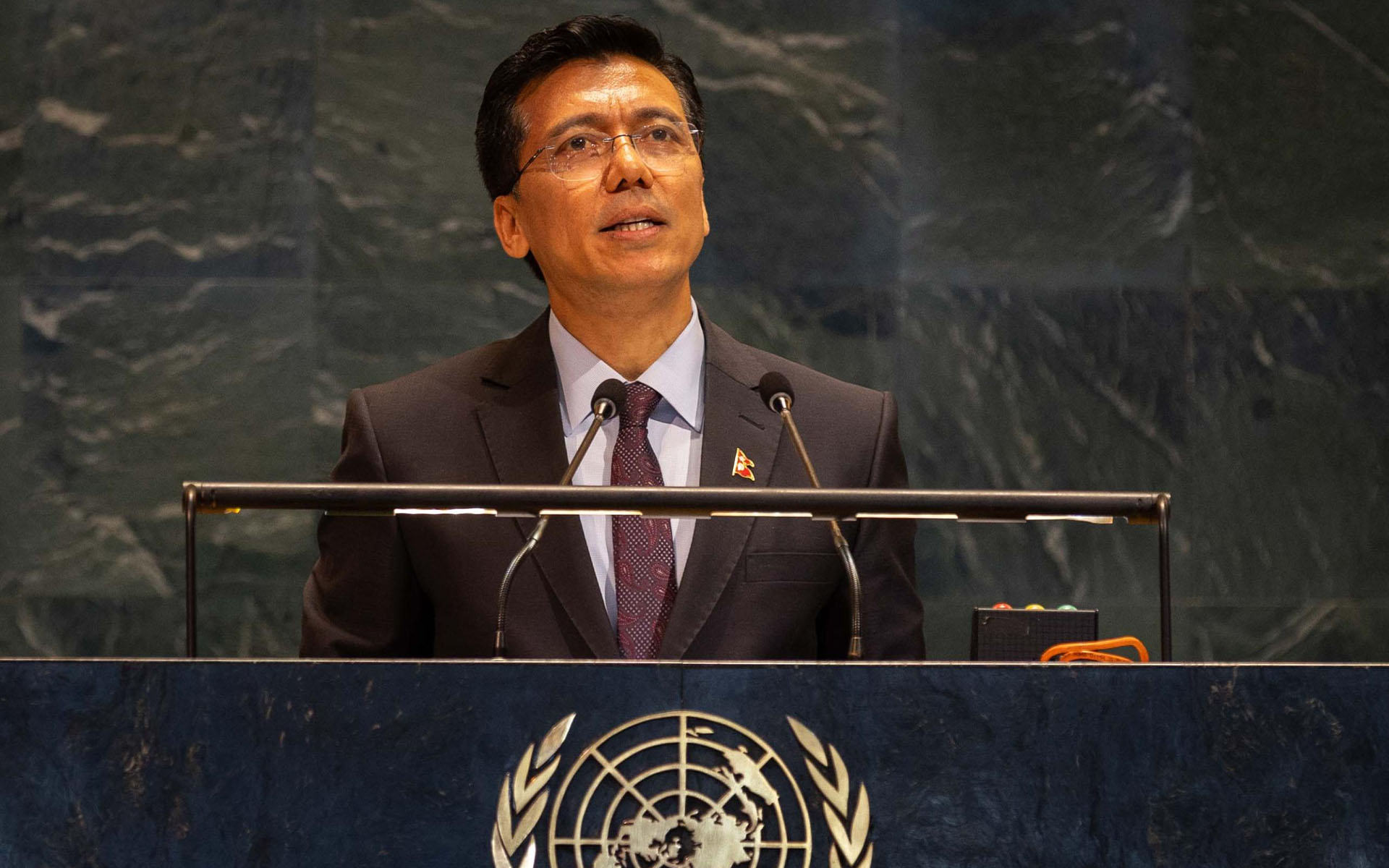
Seventy years into its membership, Nepal has achieved a historic milestone in the United Nations. Nepal now leads the Economic and Social Council (ECOSOC), one of the UN’s six principal organs, marking its most significant diplomatic achievement to date. On July 31, Nepal’s Permanent Representative to the UN in New York, Lok Bahadur Thapa, was elected President of ECOSOC. This achievement comes at a moment of profound global unease. With multilateral cooperation under strain and challenges to the international order mounting, Nepal has a unique opportunity to play a significant role and contribute to global conversations on sustainable development and international cooperation.
Former Foreign Secretary Shankar Das Bairagi described this as a landmark in Nepal’s long history of multilateral diplomacy. Stressing the gravity of the moment, he emphasized that this opportunity has arrived amidst multiple, mutually reinforcing global challenges, placing a great responsibility on the nation’s shoulders.
Ambassador Thapa, aware of the significance of this leadership role, called it a “historic moment” for Nepal and its enduring commitment to multilateralism.
As the newly elected ECOSOC President, Ambassador Thapa announced that the motto of his presidency will be “Delivering Better,” which requires strengthening partnerships and multilateralism to ensure the effective implementation of global initiatives, including the 2030 Agenda for Sustainable Development. “Delivering better is not an option—it is an imperative. It is our pathway to restoring trust in multilateralism, bridging divides, empowering the most vulnerable, and translating commitments into action,” he remarked.
This appointment marks a new chapter in Nepal’s UN history, placing it in a leadership role that surpasses even its earlier terms as a non-permanent member of the UN Security Council. Nepal held that influential seat twice—1969–70 and 1988–89—but the ECOSOC presidency elevates the country from participant to chair of a global agenda-setting institution.
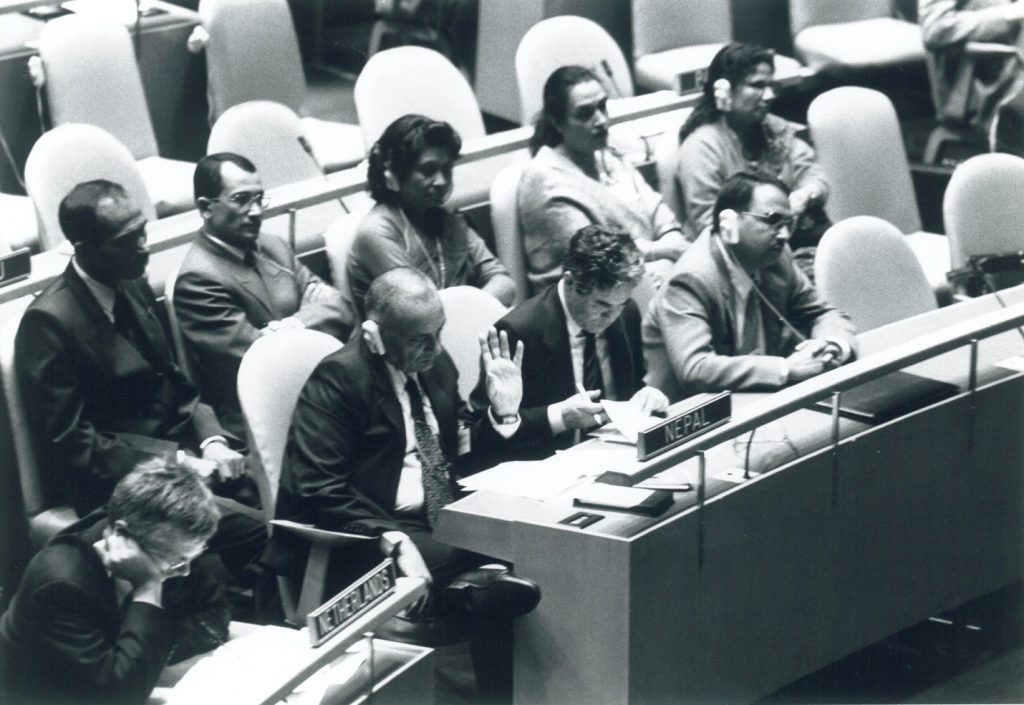
According to the UN, ECOSOC is at the heart of the UN system in advancing the three dimensions of sustainable development—economic, social, and environmental. It serves as the central platform for debate, innovative thinking, consensus building, and coordination to achieve internationally agreed goals. It also follows up on major UN conferences and summits. Established in 1945 as one of the six main UN organs, ECOSOC has 54 member states elected by the General Assembly for three-year terms on a rotating regional basis. Nepal’s leadership of this prestigious institution is therefore a major achievement in multilateral diplomacy.
Ambassador Gyan Chandra Acharya, former Under-Secretary-General and High Representative for the LDCs, LLDCs, and SIDS, underscored the importance of this appointment: “It is heartening to note, and indeed an important milestone in our UN journey, that Nepal’s PR, Ambassador Lok Bahadur Thapa, has been elected President of ECOSOC.”
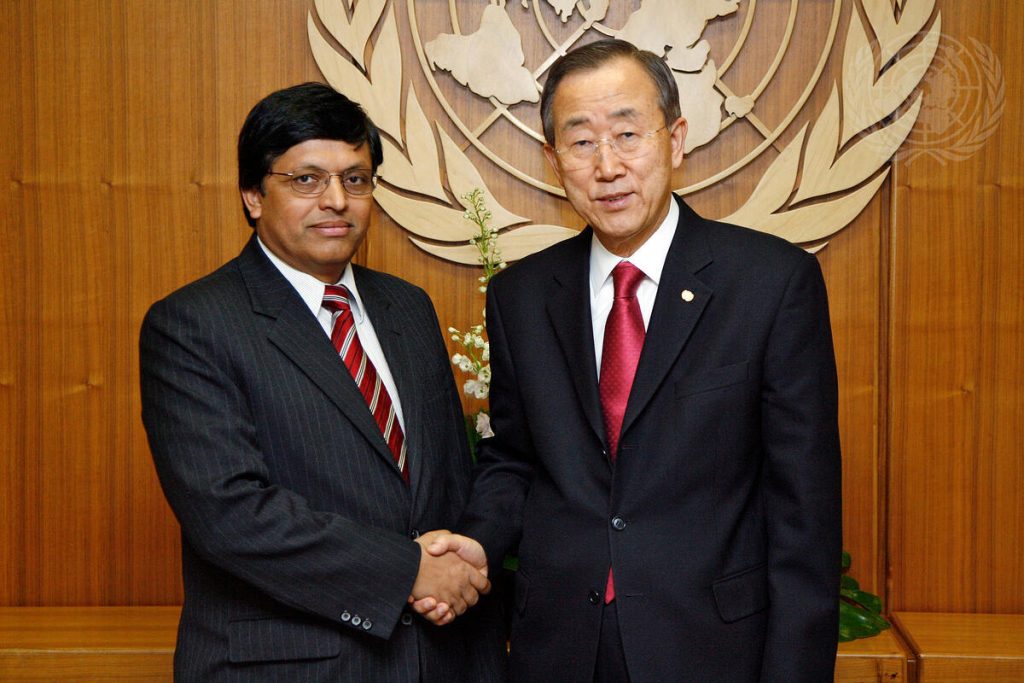
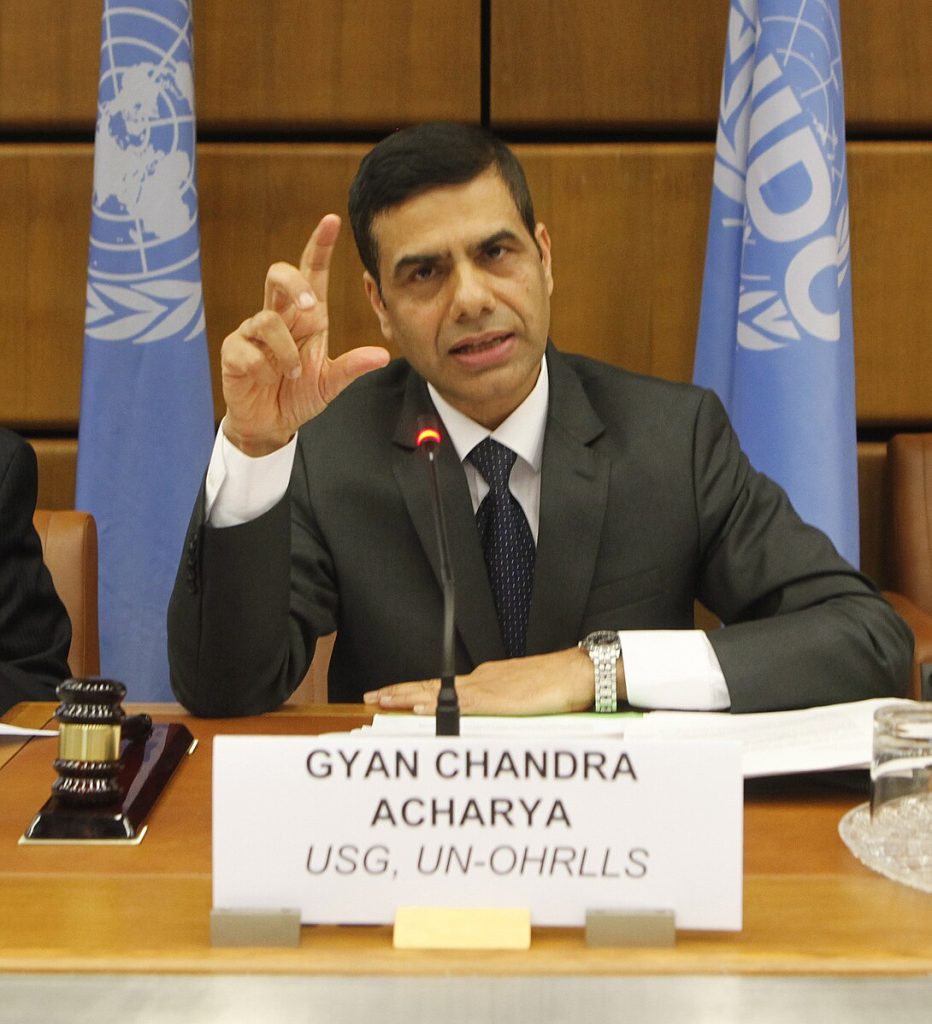
Acharya, who also served as Nepal’s Foreign Secretary, added, “It is a singular honor for Nepal and Ambassador Thapa, especially at a time when multilateralism is under tremendous stress. I wish him success in revitalizing the role of ECOSOC in ensuring effective delivery and enhancing global cooperation for equitable progress and sustainable development, as envisaged by the framers of the UN Charter.”
Nepal first applied for UN membership in 1949 but was admitted six years later, on December 14, 1955, after the Soviet Union vetoed its initial bid. Since then, Nepal has been an active UN member, not only collaborating closely with the organization but also taking leadership in several of its organs, committees, and institutions.
Recently, Nepal played a key role during the Fourth International Conference on Financing for Development in Seville, Spain. Working as a co-facilitator alongside Mexico, Zambia, and Norway, Nepal helped shape the final outcome document, the Compromiso de Sevilla (the Seville Commitment). After months of tough negotiations, Ambassador Thapa hailed the result as a historic opportunity to address pressing financial challenges: “It recognizes the $4 trillion financing gap and launches an ambitious package of reforms and actions to close this gap with urgency,” he said, highlighting commitments to boost tax-to-GDP ratios and improve debt sustainability.
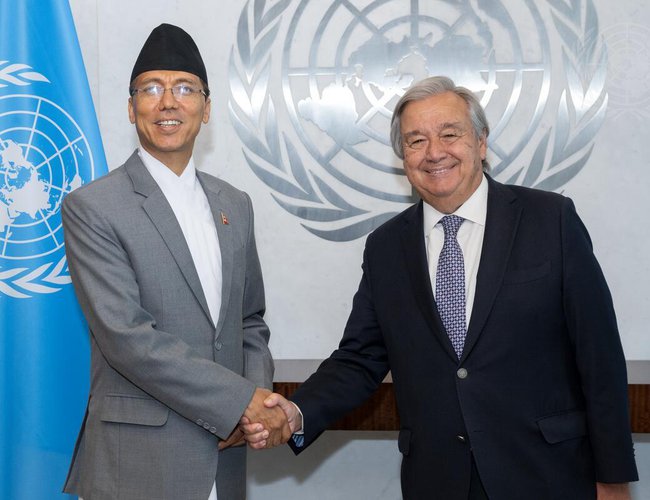
Earlier in April, Nepal’s former Foreign Minister, Dr. Arzu Rana Deuba, was elected Chair of the 81st session of the United Nations Economic and Social Commission for Asia and the Pacific (ESCAP). This marked the first time Nepal held such a leadership position at ESCAP.
Nepal also currently chairs the Global Coordination Bureau of the Least Developed Countries (LDCs), having assumed this role in April 2023 for a three-year term. As Chair, Nepal has been leading discussions on issues ranging from economic opportunities to climate change. It has pledged to work in solidarity with LDC members, the UN system, and development partners to safeguard and promote their collective interests.
Similarly, former Permanent Representative Amrit Bahadur Rai was elected Vice-President of the 77th Session of the UN General Assembly and served as Chair of the Economic and Financial Committee (Second Committee) from 2022 to 2023. In 2016, Nepal was elected one of four Vice-Presidents from the Asia-Pacific Group of States for the 71st session of the General Assembly.
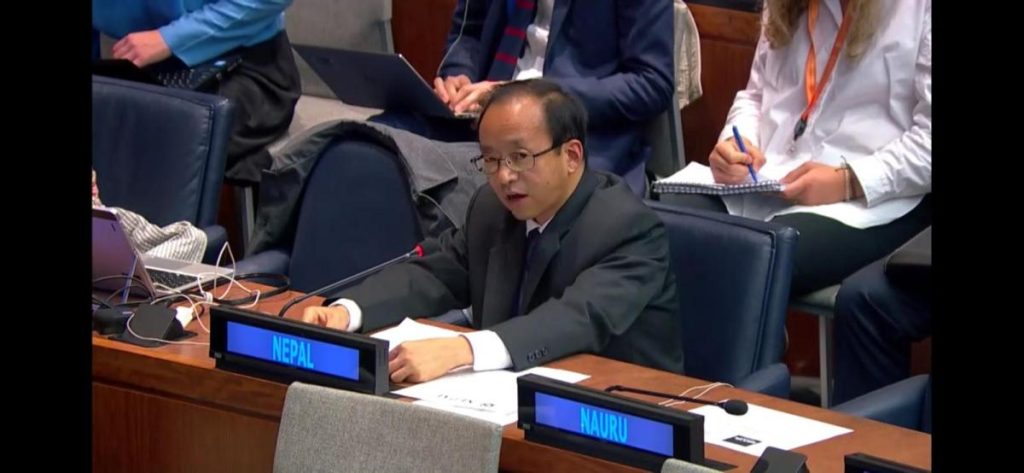
Former Permanent Representative Madhu Raman Acharya offered timely advice: “While we have had many opportunities, we must understand that when Nepal secures a major leadership role, its representative must think globally. As the leader of ECOSOC, the President must address global affairs, not only the affairs of Nepal. Serving the overall interests of the international community must be prioritized, since the position will naturally create opportunities to contribute directly to Nepal in different programs and policies.”
In its decades-long UN engagement, Nepal has also chaired the Fifth Committee (Administrative and Budgetary). In 2015, then-Permanent Representative Durga Prasad Bhattarai was elected Chair of the Fifth Committee and earlier chaired the Fourth Committee (Special Political and Decolonization) during the 69th session of the General Assembly. Another major achievement was the appointment of Ambassador Gyan Chandra Acharya as UN Under-Secretary-General and High Representative for the LDCs, LLDCs, and SIDS (UN-OHRLLS) in September 2012. In 2006, the Permanent Representative of Nepal to the United Nations, Madhu Raman Acharya, was elected Chairman of the Fourth Committee (Special Political and Decolonization) for the sixty-first session of the General Assembly.
Alongside diplomacy, Nepal’s most visible UN contribution has been peacekeeping. Since its first mission in 1958 with five military observers sent to the United Nations Observer Group in Lebanon (UNOGIL), Nepal has become one of the world’s largest troop-contributing countries (TCCs). Today, 5,819 Nepali personnel, including 561 women, are deployed in 10 active missions. Nepali generals have commanded UN missions as Force Commanders and in other leadership roles. As Maj. Gen. (ret.) Binoj Basnyat observes, Nepal’s long-standing contribution to global peace through UN peacekeeping represents a significant achievement in defense diplomacy.
From its entry into the UN seventy years ago, Nepal has proven itself a dedicated global citizen—contributing through diplomacy in New York, leadership in key committees, and the bravery of its peacekeepers in the field. The ECOSOC presidency is the culmination of this long journey, placing Nepal at the forefront of the global effort to build a more just and sustainable world.